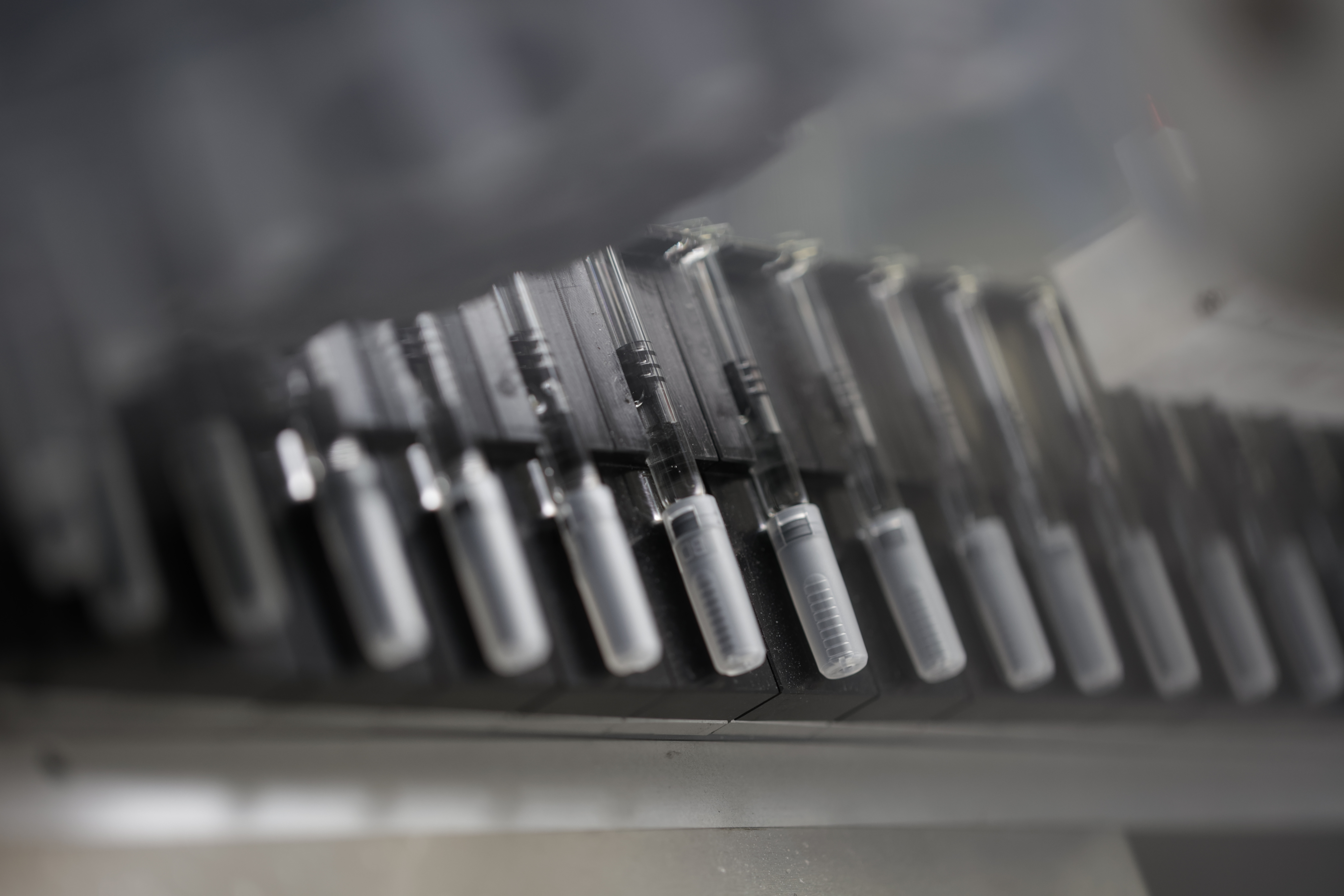The final results of the pivotal PRISMA-3 study show the efficacy of both dosage strengths of the once-monthly injectable antipsychotic for the treatment of patients with acute exacerbation of schizophrenia.
Fri, 05/07/2019 - 12:15
5 minThe final results of the pivotal PRISMA-3 study show the efficacy of both dosage strengths of the once-monthly injectable antipsychotic for the treatment of patients with acute exacerbation of schizophrenia.










6S3A6894.jpg
Today, Laboratorios Farmacéuticos Rovi, S.A. (“ROVI”) has announced the conclusion of the PRISMA-3 and BORIS studies, thus completing the Clinical Research Program for Risperidone ISM®, in which 679 subjects participated. All the data collected and analysed in this Program will be included in the registration dossier to apply for marketing authorization for Doria® for the treatment of schizophrenia in the European Union and United States, in a first phase, and, subsequently, in other countries.
As the company announced on 19 March, 2019, the final results of the pivotal PRISMA-3 clinical study confirm the superiority of Risperidone ISM®, a novel investigational antipsychotic for the treatment of schizophrenia with once-monthly injections, over the placebo. The prespecified primary efficacy endpoint in the study was the mean total score on the Positive and Negative Syndrome Scale (PANSS) after twelve weeks. The reductions in comparison with the baseline values obtained in the PANSS with once-monthly doses of 75 mg or 100 mg of Risperidone ISM® were statistically higher than those observed with placebo (p<0.0001).
Likewise, both dosage strengths of Risperidone ISM® (75 mg and 100 mg, once monthly) showed reductions that were statistically higher than those of the placebo (p<0.0001) in the total score on the Clinician Global Impression-Severity (CGI-S) scale, at week 12, which was the prespecified key secondary efficacy endpoint in the study.
Additionally, ROVI will include long-term safety data on more than 100 patients exposed to at least one year of treatment with Doria® in the registration dossier, as recommended in the International Conference on Harmonization (ICH) Guideline E1.
Lastly, ROVI has also announced the completion of the BORIS clinical trial, aimed to compare the bioavailability of multiple doses of oral risperidone with multiple doses of Risperidone ISM® in stable schizophrenic patients. The results of this study will provide support to the registration of Doria® with the FDA (Food and Drug Administration) and EMA (European Medicines Agency) as a hybrid application, i.e. based partly on ROVI’s own studies and partly on studies previously performed with a reference medicine.
“After successfully completing the Doria® Clinical Trial Program, we are now closer to marketing it and hope to file an application for marketing authorization for Doria® with the EMA and FDA in the very near future”, said Juan López-Belmonte, ROVI’s CEO. “Once again, I want to thank all the patients, their caregivers and the investigators for their participation in this extensive clinical program and we hope that we will soon be able to contribute to the therapeutic arsenal to combat this severe, chronic and disabling disease”.
About the PRISMA-3 study
The pivotal study PRISMA-3 is a multicenter, randomized, double-blind, placebo- controlled clinical trial to evaluate, after a period of 12 weeks, the efficacy and safety of once-monthly intramuscular injections of Risperidone ISM® in patients with acute exacerbation of schizophrenia.
A total of 438 patients were included in the double-blind period of the study and were randomly allocated to receive Risperidone ISM® 75 mg or 100 mg or placebo. Slightly more than half of the participants (61%) were recruited in U.S. centres. At the beginning of the study, patients, of both sexes, were between 18 and 64 years old, were diagnosed with schizophrenia according to the criteria of the Diagnostic and Statistical Manual of Mental Disorders, 5th Edition (DSM-V) and presented an acute exacerbation or relapse of the disease, confirmed by a PANSS total score between 80 and 120 and a CGI-S score greater than or equal to 4.
The prespecified primary efficacy endpoint in the study was the mean change at 12 weeks from baseline value in the PANSS total score, using a Mixed Effects Model with Repeated Measurements (MMRM), with the Hommel’s closed-testing correction procedure for multiple tests. In addition, the study protocol prespecified as a key secondary efficacy endpoint the mean change in the CGI-S total score at 12 weeks compared to the baseline value.
Patients who successfully completed the double-blind period were offered to continue in a long-term, open-label 12-month extension phase with once-monthly injections of Risperidone ISM® (75 mg or 100 mg). New, clinically stable patients ("de novo" patients) have also been able to enter this open phase of the study. The objective of the study extension phase (currently ongoing) is to check the long-term safety, tolerability and durability of Risperidone ISM®.
The clinical trial PRISMA-3 is the pivotal study for the registration of Doria® and its results will be presented at scientific congresses and published in a prestigious international journal in the near future.
About the BORIS study
The BORIS study is an open-label, single-sequence study in schizophrenics who are receiving stable treatment with oral risperidone. The subjects participating had to be previously receiving stable treatment with oral risperidone (4 mg) and continued with the oral treatment for one week, in order to ensure that steady-state concentrations of risperidone could be reached. After the oral treatment with risperidone, four intramuscular (IM) injections were administered at four-week intervals.
The main objective of this study is to assess the comparative bioavailability at the steady state of 100 mg of risperidone ISM® injected every four weeks in comparison with 4 mg of oral risperidone once a day in subjects with schizophrenia stabilized with oral risperidone.
The results of this study will be used to support the registration of Doria® and will be published in a prestigious international journal in the near future.
About schizophrenia
Schizophrenia is a chronic, serious, and disabling mental disorder that affects about 1% of the population. Schizophrenia patients are characterized by a mixture of psychiatric symptoms, both positive (delusional ideas, hallucinations, disorganized language and behaviour) as negative (affective flattening, speech poverty, abulia) in nature. The disease usually starts at a critical age for personal development, forcing patients in many cases to leave their educational or work activity, resulting in a great deal of suffering for the subjects and their family environment as well as representing an important loss for society at large. It is estimated that approximately 3% to 5% of total health expenditure is devoted to schizophrenia.
About the ISM® technology
ISM® is a Technology Platform for the release of drugs patented by ROVI, which is based on the in situ formation of biodegradable matrices after the administration of a liquid carrier. Its unique characteristics allow therapeutic levels of the medicine to be quickly obtained after its administration, without the need for oral coadministration or additional boosters or loading injections to achieve and maintain the levels in a predictable and sustained manner, which has a greater likelihood of satisfying the patient's clinical needs.